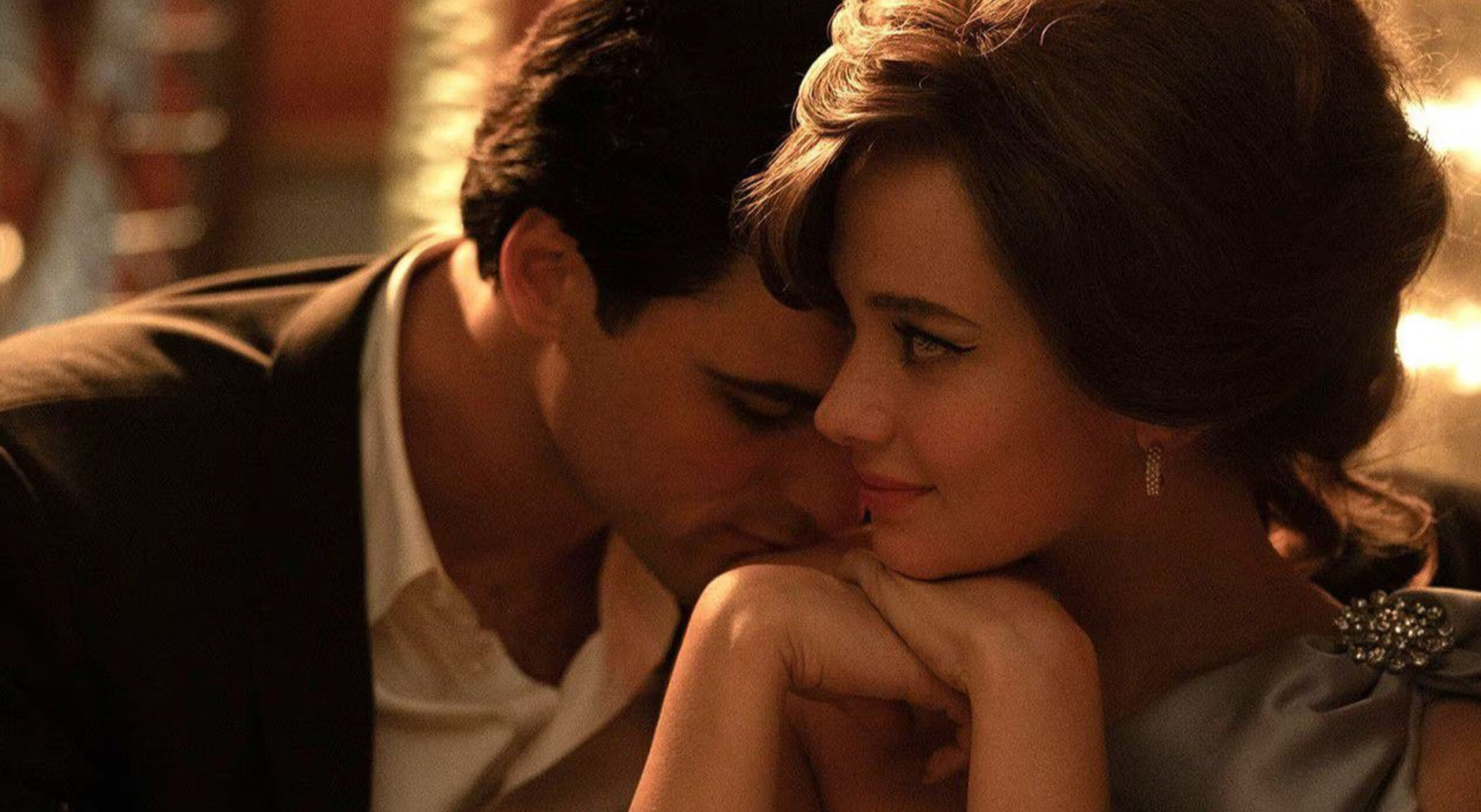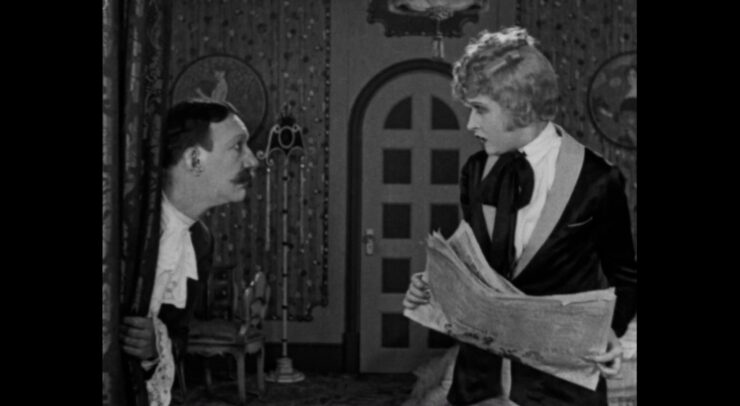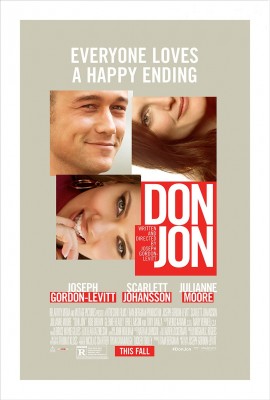Priscilla is beautifully told and successfully adds nuance to the story
The King of Rock’n’Roll is back from the dead — Austin Butler and Jacob Elordi embody Elvis Presley in Baz Luhrmann’s Elvis (2022) and Sofia Coppola’s Priscilla (2023), respectively.
The latter is named for his wife, Priscilla Presley, who is largely glossed over in the Elvis biopic. Indeed, Elvis conveniently forgets to mention that despite the thousands of women literally throwing themselves at Elvis, the singer chose to pursue the young woman…aged 14 at the time of their first meeting, and 10 years his junior. Why?
I’m actually an Elvis fan, yet I enjoyed both films immensely. Let’s break down the two vastly different portrayals of the singer, and explore one of the most scrutinized relationships in modern history.
Elvis is a dazzling film that indulges in bejeweled titles and costumes, and electrifying renditions of the singer’s iconic hits. Austin Butler has painstakingly studied Elvis’s voice and its changes throughout the years, along with his posture, mannerisms, and swoon-worthy grin.
I was surprised the story would be revisited so soon in Sofia Coppola’s Priscilla, and was suspicious it was simply piggybacking off of Elvis’s success. Elvis undeniably glorifies the singer and paints him as a helpless victim of the music industry; not that I fully agree or support that portrayal, but I wasn’t sure if Priscilla would dedicate its being to tearing that image down. However, the film successfully adds a layer of complexity to the story.
Largely based on Priscilla Presley’s own memoir, Elvis and Me, Cailee Spaeny’s embodiment of Priscilla is desperate to please in a relationship that’s anything but normal. Innocent and tentative, she’s swept up in the star’s tidal wave of a career.
Jacob Elordi’s performance certainly exceeded my expectations, but Austin Butler still wins by a long shot, in my opinion. Nevertheless, a ScreenRant review puts it perfectly — Elordi’s in most of the scenes, and when he isn’t, his absence is felt.
Butler and Elordi portray vastly different sides of Elvis — the former is the performer, the king, the god. Elordi, on the other hand, plays Elvis the husband, the one behind closed doors. His performance is played down significantly but is respectable in its own right. He adds a darker side to Elvis, an edge; we see how this behavior negatively affects Priscilla, whereas in Luhrmann’s film she is simply a forgettable side character.
The performances are in no way interchangeable and are puzzle pieces that help us to see the bigger picture. They are a reflection of what the two directors wished to emphasize: a titanic career and influence, versus a detailed and emotionally-oriented portrait of the woman behind the scenes.
The height difference between Elvis and Priscilla in Coppola’s film is jarring and worth mentioning, because I think it’s symbolic; her head only just brushes his shoulder, especially when he first meets her as a 14-year-old Grade 9 during his military service in Germany.
Although they could have easily remedied this with trick shots (Priscilla standing on a platform or digital effects), I think the shocking height difference was preserved intentionally to truly highlight the age difference, and the unequal distribution of power and influence — not only in their relationship, but in the world’s eyes.
Elvis often gets the last word, which Priscilla accepts for most of the film. Any defiance is greeted with an explosive outburst from the singer.
Most of the time, Elvis is very tender with Priscilla, hugging and kissing her affectionately (gestures she returns with the same enthusiasm), but there were moments when he became eruptive, angry, and violent. In a particularly climactic moment, he hurls a chair in her direction. He apologizes immediately after, but these instances are terrifying reminders that he is a grown man, very capable of being dangerous and hurting her if he wants to.
Since this film is really from Priscilla’s perspective, we see how all the more shocking and unexpected his mood swings were, which makes them more impactful. They are hardly mentioned in Elvis.
We quickly understand the polarized life Priscilla leads in Coppola’s film. We’re privy to the sudden spikes of excitement that occur when Elvis is around, disappearing in his absence. The use of music in Priscilla is very effective — some of the songs were edited to be grating on the ears, turned up to a deafening roar in party or gambling scenes with Elvis, then abruptly stopping as Priscilla is found roaming around Graceland (Elvis’s mansion) like a ghost, alone again.
While Elvis wasn’t painted as a victim —the Colonel, the root of his suffering in Luhrmann’s film, is only mentioned briefly —, Priscilla certainly wasn’t either. She had a certain resilience to tolerate her husband’s shameless cheating, international attention, suggestive fan mail, rumors, and his constant absence.
During the family photo session toward the end of Priscilla, she realizes with a jolt that she is rotting away, waiting for him. Their daughter squirms out of her father’s lap and rushes to hug the nanny, ignoring her mother, the former having practically raised her while Priscilla numbly waits for her husband.
I would argue that this is the climax of Priscilla because shortly after, Priscilla rather unceremoniously informs Elvis that they are getting a divorce. He reacts with woozy disbelief, clearly intoxicated, not understanding how she could do this when she has “everything a woman could want”…but at what cost?
The relationship between Priscilla and Elvis was a strange one. It doesn’t sit well with me at all that he pursued her from such a young age, and how they built an interdependence. Initially, Priscilla insists on continuing to visit him despite her parents’ weariness, because “he needs her”, “he just lost his mother and he’s grieving”, and “he’s homesick”. She’s only 14 years old —- why does a grown man need her help?
The cinematography in Priscilla was excellent. From the first few shots, I was taken by the attention to texture —- the carpet beneath Priscilla’s bare feet with toenails painted cherry red; the heavy, satin robin egg blue drapes hanging luxuriously; the meticulously applied makeup. The colors and camera movements in the roller skating rink scene captured the ambiance perfectly; I didn’t want to blink, refusing to miss a single frame.
I also adored the 50s, 60s, and 70s outfits. Priscilla’s swirling circle skirts and dresses, and Elvis’s white suit, cape, and bell-bottomed pants whirling about as he strides off the stage in the singular shot we get of him performing.
Overall, Priscilla was truly an experience, and I enjoyed every second. It’s a more grounded take on the famous story, and I appreciated Priscilla’s struggle. I was proud of her when she finally decided to leave Elvis.
Both her story and Elvis’s are tragic. They were both cheated of a normal life, swallowed by the mechanic music industry, the true villain here. I was able to empathize with Priscilla and lived her excitement and indignation with her. Priscilla only slightly changed my perspective of Elvis — I’ve never idolized him, but I do consider myself a fan. I always knew he wasn’t perfect. His explosive outbursts, dismissiveness, and audacity towards Priscilla at times upset me, but the real Priscilla continues to say that they loved each other to this day.
I personally don’t think that was the product of manipulation, they truly spent some unforgettable moments of genuine love and joy together. I will continue to appreciate his songs without shame. He was a trailblazer in certain aspects and an icon, but like all human beings, he did some unsavory deeds.
I’m glad I was exposed to them because they did deepen my insight about him and his family. This film added another dimension to my perception of a man I will never meet, and beautifully portrayed his wife’s story, highlighting her quiet strength.
Priscilla is a triumph.




